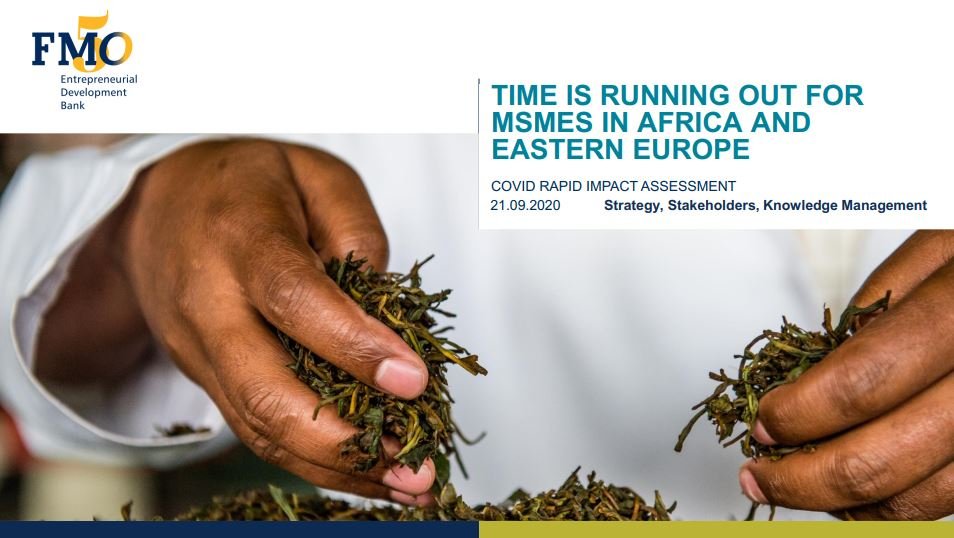That is the conclusion of the Rapid Impact Assessment conducted by Dalberg for FMO in Georgia, Jordan, Kenya, Tanzania, Zambia and Ghana. In collaboration with some of our Financial Institution clients in these countries, FMO wanted to understand the extent of the challenges that COVID-19 creates for these important businesses: Jointly they provide for 62% to 86% of all jobs in these countries. And thus the health these MSMEs has a direct impact on the livelihoods of a majority of citizens in these countries.
By itself, the conclusion that MSMEs are in distress was to be expected. Therefore, the Rapid Impact Assessment focused on understanding the problem better and developing appropriate solutions for a transition to more resilient business in the medium-term, in addition to short-term COVID-19 responses that FMO has already mobilised with its partners.
The approximate 900 phone interviews with MSMEs and additional in-country research led to clear outcomes (albeit with important nuances across countries):
- The impact of COVID on MSMEs in the six countries is significant: 80-90% of MSMEs suffered major sales drops (of more than 25%) in H1 2020. Particularly impacted are Ghana, Jordan, Georgia and Kenya, where approximately 50% of MSMEs in experienced a 50%-90% sales drop in H1 2020
- As a result, >50% of MSMEs in our portfolio could only partially or hardly meet operating expenses and loan commitments in H1 2020. Some 50-70% of MSMEs claim to have cash reserves for 3 months or less and thus many MSMEs are running out of time. Yet, many MSMEs expect a recovery of 6+ months and thus might be in need of additional support.
- Most (70-85%) MSMEs try to adapt by taking finance or operational measures, for example by temporarily shedding jobs or reduced wages to cut costs (which trigger an important impact on livelihoods of workers!): some 30-50% businesses do so. But on average less than 10% of MSMEs across all countries are taking action on more structural business transformations, such as investing in online sales channels or digitization of their administrative systems.
- Government and financial support are of limited effectiveness: Government or financial services support typically reached only 20% of MSMEs in Jordan and Georgia and <10% of MSMEs in SSA.
- Many MSMEs hope that things will still improve within the coming months. Also their dwindling cash reserves prohibits them from investing into transformations that will make their businesses more resilient in the long term. Yet perhaps COVID is going to linger longer than we can imagine and short-term financial support might by itself not be sufficient to create resilient businesses. We will therefore also need to think of how to improve the long term resilience of the sector going forward. Some suggestions are made in the reports on how to do so.
More details are provided in the slide deck below (click on the image to open the PDF). FMO will be taking this work and insights into account while further developing its response to COVID in FMO focus markets.

More on the methodology
The Rapid Impact Assessment was conducted by Dalberg and based on 30-minute phone interviews conducted with ~150 MSMEs in each country from June until end of August. They were selected in cooperation with one or more of FMO’s Financial Institutions clients. Additionally, in-country stakeholder interviews and desk research was conducted to validate the survey findings and add further explanations to the results.
Six FMO countries were selected to focus the review on: Georgia and Jordan (ECA) as well as Kenya, Tanzania, Zambia and Ghana (Africa). Each country reacted to COVID-19 differently and will thus help to understand how COVID results in different needs for support, but all have FMO-Financial Institutions clients and are in focus of our public funds such as MASSIF (that funded the review) and NASIRA.


